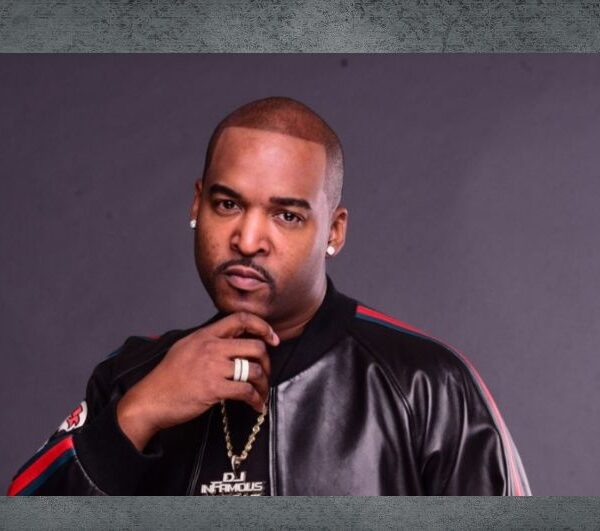
|
Getting your Trinity Audio player ready...
|
By Alric Lindsay
Today, November 25, 2024, Jonathon Hughes of Samson Law Associates alleged that the Office of the Director of Public Prosecutions engaged in an abuse of process in the conduct of a case against Hughes’s client, Joseph Alfred Hurlston. According to Hughes, there is merit in the application to the Summary Court for abuse of process because the DPP kicked the can down the road for 18 months, poorly drafted charges against his client (referring to a charge of ganja when it should not be so), constantly requested adjournments, reassigned lawyers to the case at least four times and failed to present additional evidence of an expert engaged by the DPP. After hearing arguments from Hughes and DPP Crown Counsel, Magistrate McFarlane explained that she would take some time to consider the abuse of process application and return with a decision on December 11.
What happened to Hurlston?
Reportedly, Hurlston imported stock for his store from the United States in May 2023.
After Hurlston made the relevant declaration to Customs and Border Control, CBC allegedly cleared the items and released them to Hurlston.
Hurlston then placed the items on the store shelves.
The next thing Hurlston knew, the police raided his store, and his products were seized in July 2023.
The case continued 18 months later with no resolution.
Why Hurlston’s lawyer applied for an abuse of process
For those unfamiliar with an abuse of process, this was the basis used by Justice Stanley John (Actg.) of the Grand Court earlier this year to order a “stay of proceedings” and stop DPP’s indecent assault case against veteran politician McKeeva Bush.
Analysing the reasons for stopping proceedings in the Bush case, the judgment of Justice Stanley John said:
As set out in Maxwell (supra), it is well established that the Court has a power to stay the proceedings in two categories of cases, namely, (i) where it will be impossible to give the accused a fair trial, and (ii) where it offends the Court’s sense of justice and propriety to be asked to try the accused in the particular circumstances of the case.
The judgment of Justice Stanley John added:
As I said in ex tempore Ruling on 28 February, 2024, the decision to stay the proceedings was based solely on the disclosure information provided to the Defence during the course of the trial and the written and oral submissions of both Counsel.
The judgment of Justice Stanley John continued:
The Court has an inherent duty to protect the integrity of the criminal justice system’. In the instant case, [Y] had, as early as September 2022, indicated that she was not interested in a prosecution and did not think that the matter rose to the level of a crime.
In light of the foregoing, I formed the view that the prosecutorial system was being misused by person/s with their own agenda. It is imperative that public confidence in the administration of justice must always be maintained, and the Court must never be seen to be abdicating that duty.
The judgment of Justice Stanley John concluded:
The manner in which the Prosecution was conducted in relation to [Y] caused me a great deal of disquiet, and I invoked my inherent jurisdiction to prevent any abuse of process.
In Hurlston’s case, the first question to ask is whether it is possible to give him a fair trial.
This right is enshrined in section 7 of the Bill of Rights under the Cayman Islands constitution, which states:
Fair trial
7. (1) Everyone has the right to a fair and public hearing in the determination of his or her legal rights and obligations by an independent and impartial court within a reasonable time.
Hurlston’s lawyer, Hughes, submitted that 18 months of delays caused by the DPP was not reasonable.
In the circumstances, Hughes added rhetorically: “Are we expected to just wait indefinitely for the prosecution to get their house in order so that at some distant future date [a fair] trial may be possible?”
Hughes asked this question because the DPP constantly changed the attorneys assigned to the case, clumsily drafted charges, and constantly requested adjournments, all of which led to delays in the case.
To demonstrate that Hughes was not exaggerating his delay claims, he provided the following chronology of delays in the Summary Court:
| Date | Description |
| February 19,2024 | Hurlston’s first appearance in Court. Six days later, a first written request was made for the DPP to review the charges. Weeks passed and no response was received by Hurlston’s lawyer. |
| March 18, 2024 | DPP responded saying that the case being reassigned from DPP lawyer “Soondarisingh” to DPP lawyer “Alexander Barber.” |
| March 19, 2024 | DPP requested further time to complete a review of charges and were given one month. Matter was listed for April 16. |
| April 15, 2024 | DPP advises that they did not finalise their review as they are waiting on material from third-party agencies. |
| April 16, 2024 | DPP sought an extension of time. Court granted an adjournment to May 7, 2024 |
| May 7, 2024 | DPP requested four more weeks to June 11, 2024. |
| May 9, 2024 | DPP advised by email that they were reassigning lawyers on the case from DPP’s “Barber” to DPP’s “Kumar.” |
| June 7, 2024 | Hurlston’s lawyer requested an update. None provided by DPP. |
| June 10, 2024 | DPP provided a statement from the Chief Medical Officer stating that some of the substances that have been charged were not controlled substances in terms of his expert analysis of the law. |
| June 11, 2024 | DPP requested final adjournment to undertake final review. Matter was listed for July 16, 2024 for further review. |
| July 16, 2024 | DPP informed the Court that although they agreed that a further statement from Dr. Gent was required, they did not receive it. |
| August 9, 2024 | DPP informed Hurlston’s lawyer that the further statement from Dr Gent was not yet in hand. |
| August 13, 2024 | Hearing held. |
| August 27, 2024 | An additional statement from Dr Gent is still not yet in hand by DPP. DPP is directed to provide it by November 7, 2024. |
| September 12, 2024 | On or around this date, charges two and five, which related to mushrooms, were withdrawn |
| September 19, 2024 | Case management hearing held. There was outstanding question whether the substances shown on the drug certificates were “controlled substances” under the Misuse of Drugs Act. DPP confirmed that an additional statement required from Dr Gent since June was still not received. DPP was directed to provide the statement by October 7. |
| October 31, 2024 | An additional statement from Dr Gent is still not yet in hand by DPP. DPP directed to provide by November 7, 2024. |
| November 14, 2024 | DPP reassigns case from DPP’s Kumar to another lawyer but did not identify the new lawyer. DPP still did not have updated statement from Dr Gent. DPP indicated that they would not be ready for trial on November 25 and wished to set a new trial date. Hurlston’s lawyers indicated that he had waited for 18 months so far and would apply for an abuse of process. |
| November 25, 2024 | Hearing held. DPP noted that DPP’s new lawyer, Wedderburn, was the new lawyer on the case |
Impact of 18-month delay
DPP’s shuffling of lawyers above meant that submissions sent to DPP’s Soondarisingh were resent to DPP’s Barber, which were then resent to DPP’s Kumar, which were resent to DPP’s Wedderburn. Each person, therefore, had to get up to speed on the file, which required time spent understanding the facts and engaging defence counsel and witnesses.
More importantly, the delay has implications for Hurlston’s constitutional right to a fair trial. This requires that his trial be held “within a reasonable time,” and in this case, a layperson may find it challenging to conclude that an 18-month delay is a “reasonable time.”
Since part of the 18-month delay was attributed to DPP’s frequent Court adjournments, Magistrate McFarlane addressed adjournments generally. In particular, she drew lawyers’ attention to Practice Direction No. 5/2015, which appears on the judiciary’s website.
Practice Direction No. 5/2015 states that its purpose “is to establish a procedure for case management in criminal proceedings in the Summary Court to reduce delays and improve efficiency.”
Practice Direction No. 5/2015 adds:
The overriding objective of this Practice Direction is that criminal cases be dealt with justly and expeditiously.
Dealing with a case in furtherance of the overriding objective includes… (iii) Recognising the fundamental rights and freedoms protected by the Constitution of the Cayman Islands.
Practice Direction No. 5/2015 continues:
The Court must further the overriding objective by actively managing the case. Active case management includes… (vi) Discouraging delay, dealing with as many aspects of the case as possible on the same occasion, and avoiding unnecessary hearings;
Regarding time limits for conducting cases in the Summary Court, Practice Direction No. 5/2015 says:
11.1 (i) Every matter to be tried before the Summary Court should aim to be concluded within a period not exceeding 12 months from the date of the First Hearing.
If Hurlston’s first hearing was in February 2024, then given the upcoming Christmas holidays when the Courts will be closed and challenges in obtaining a Court date in the first quarter of 2025, it is possible that the above time limit for concluding matters in the Summary Court may be exceeded.
Regarding any requests for further adjournments, Practice Direction No. 5/2015 says:
12.1 Adjournments shall be granted only if the Court is satisfied that:
(i) There is good cause for an adjournment; and
(ii) An adjournment is necessary in meeting the interests of justice.
12. 2 (i) Where there have been two or more adjournments for the same reason(s), the Court shall only grant a further adjournment if exceptional circumstances are shown.
In Hurlston’s case, there have been about a dozen hearings to date, i.e. two or more adjournments. It is unclear what factors the Summary Court will consider to determine whether exceptional circumstances exist for the DPP to adjourn further or whether any existed with previous adjournments.
The issue is exacerbated by DPP’s Wedderburn’s indication today that the DPP intends to amend one of the charges from “ganja” to “cannabinol derivatives,” which DPP’s Wedderburn commented was the result of “clumsy” drafting of the charges.
While the Court can order amendments under section 74 of the Criminal Procedure Code, the procedural issue is that Hurlston would have to be called upon again to plead guilty or not guilty to the amended charge.
The Criminal Procedure Code adds that Hurlston shall be entitled, if he so wishes, to have “the witnesses (or any of them) recalled to give evidence afresh or to be further cross-examined by the defence, and, in such last mentioned event, the prosecution shall have the right to re-examine any such witness on matters arising out of such further cross-examination.”
Regarding witnesses, DPP’s Wedderburn noted today that he only just received an email from a forensic expert who tested the drugs, adding that this is now the expert that the DPP will rely upon. Concerning the additional statement from Dr Gent that the DPP previously said it was waiting upon, DPP’s Wedderburn remarked that he was “baffled” why reliance was previously placed on Dr Gent’s statement when the forensic expert is the person who actually tested the drugs.
The introduction of the forensic witness and Hurlston’s ability to call his own witnesses may mean that Hurlston spends even more time in the Court system.
Magistrate’s decision
After hearing legal arguments from both sides, Magistrate McFarlane noted that she would need some time to review submissions and the law. A date was set for December 11, 2024, when she may be in a position to issue a decision regarding abuse of process.
Note to readers:
Amendments to charges against a person in Court are sometimes seen. An example of this was the DPP’s recent amendment of “drug importation” charges for half a dozen tourists to “drug possession” for the cannabinol derivatives they had in their luggage at the Owen Roberts International Airport. None of the tourists received jail time after pleading guilty to the charges.
Concerning case adjournments in Summary Court, Practice Direction No. 5/2015, referred to by the Magistrate, makes it clear that there must be a “good cause for an adjournment,” the “adjournment is necessary in meeting the interests of justice,” and “Where there have been two or more adjournments for the same reason(s), the Court shall only grant a further adjournment if exceptional circumstances are shown.”
It is critical that the DPP follows practice directions and Criminal Procedure Codes. This is in the interests of justice and allows matters to be dealt with expeditiously, saving the Court’s time.
For a list of practice directions from the Cayman judiciary, please see https://judicial.ky/resources/practice-directions/





